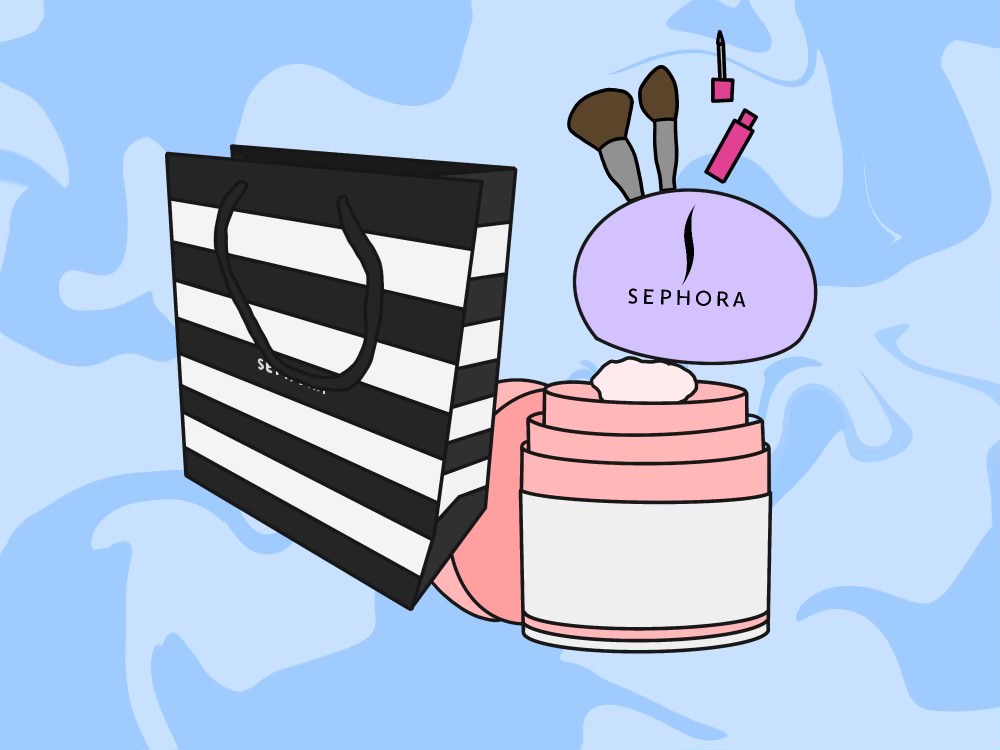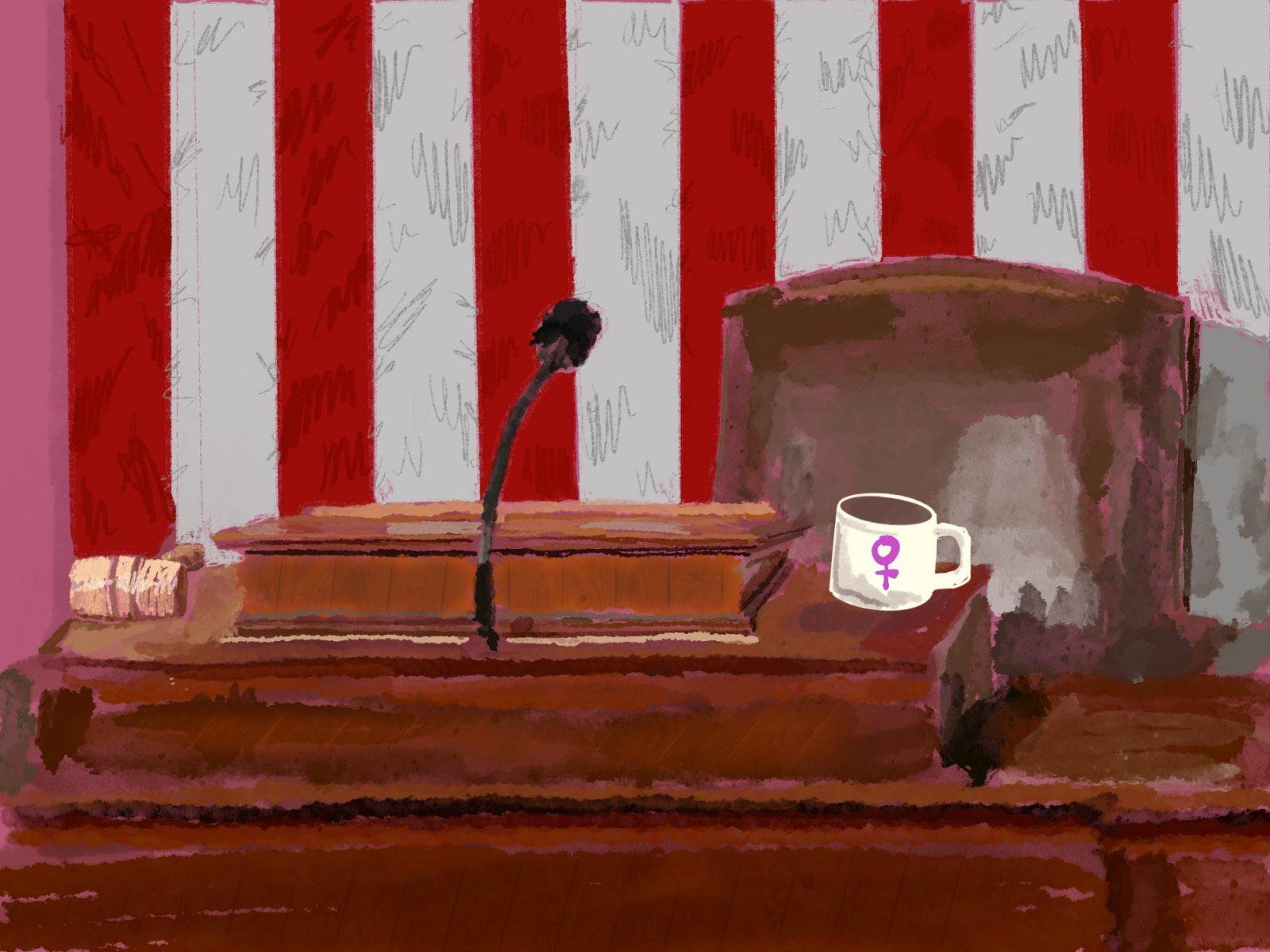It’s a universal truth that every generation complains about the generation that follows them. But Generation Z’s disdain for Generation Alpha is swarming the internet like children are swarming skincare displays.
We are only a month into 2024, and new cultural phenomena have begun to appear — one of which is the rise of “Sephora kids,” the 2024 equivalent of Veruca Salt from the famed “Charlie and the Chocolate Factory.”

Essentially, hordes of Gen Alpha kids are storming Sephora stores nationwide, purchasing anti-aging products, ruining sample displays and disrespecting both employees and their parents along the way.
Multiple Sephora employees have documented their appalling experiences on TikTok, including a user called @natsodrizzy, who witnessed a young girl make her mother buy her $500 worth of products.
Aside from the overall disrespect this girl showed to her mother by refusing to take items out of the cart, the products she brought to the register were particularly eye-opening — one being the Viktor & Rolf Flowerbomb perfume. This alone costs $96 for a standard size bottle at Sephora.
A child thinking they need perfume in the first place is baffling in its own right. Adding insult to injury, the idea of children making their parents purchase luxury perfume is ludicrous.
This phenomenon raises numerous concerns among individuals of older generations, raising questions about the dangers of consumer culture and gentle parenting.
“The problem isn’t the kids, it’s the parents,” @natsodrizzy said in her TikTok. “These little girls have never heard the word ‘no.’”
Indeed, Gen Alpha was born into the age of rapid internet globalization — they are culturally adapted consumers because of their access to the internet and, most importantly, influencers. This makes them more susceptible to following clothing and makeup trends, even if the trends don’t align with their age group.
Gen Alpha is exposed to influencers who are in their early-to-mid twenties, such as Alix Earle, rather than teen pop culture idols. In this sense, young girls are paying attention to concepts and trends beyond their age range, thus drawing them to mature stores such as Sephora.
To tell the truth, I didn’t even know what Sephora was until I was 12. Frankly, I thought stores like Claire’s and Justice were luxuries. Seeing Sephora evolve as the replacement for Gen Z’s childhood stores is depressing, to say the least.
But the problem of “gentle parenting” combined with consumer culture is the ultimate recipe for disaster.
Gentle parenting revolves around the idea that the child’s feelings — specifically the motivation behind those feelings and misbehavior — should be acknowledged without actually punishing the child. However, there is a fine line between gentle parenting and not parenting at all, which is the argument brought forth on the topic of “Sephora kids.”
It is plain and simple. If the child is allowed to push the parents around and make the ultimate decisions, then it’s not parenting. How can a parent justify their child pressuring them to buy luxury items and, above all, anti-aging skincare?
One of the hyper fixations of “Sephora kids” is retinol — a form of vitamin A added to products that has an anti-aging effect. According to USA Today, dermatologists are incredibly concerned about children using skincare products that they don’t need.
One dermatologist, Dr. Brooke Jeffy, said in an interview with USA Today that retinol is one of the main ingredients that causes damage to a child’s skin. She also added that retinol can make skin more prone to infections and weaken the skin barrier, lessening its effectiveness in protecting against ultraviolet light and pollution.
Therefore, not only are millennial parents condoning their children to buy expensive Sephora products, but they are also putting their children in harm’s way.
So why should we care about the concept of “Sephora kids”?
The truth is that “Sephora kids” are just the tip of the iceberg in the discussion of why having a childhood — with proper parenting — is so important. Childhood is a time when kids should learn to handle their emotions and learn life lessons by making mistakes. If a child is never told “no,” then they won’t be able to handle their emotions in future situations when they don’t get what they want.
Yes, it is important to acknowledge their feelings, but children must also know when they are in the wrong, and it is up to the parent to be authoritative in that aspect. It is possible to have a nurturing relationship with a child while also being firm in setting limits, which I feel may be a common misconception among millennial parents.
Of course, there is no one right way to parent, but it is incredibly important to parent, period.






























































































































Janet Boisselle • Feb 1, 2024 at 8:09 am
How can such a spoiled child learn to cope with the true tragedy that inevitably will strike in some way for everyone. The parents have failed to teach an essential skill. You speak wisdom and truth.